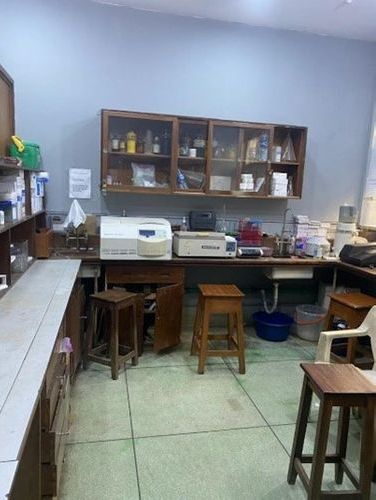In ACB Members' Words: Black History Month 2022
Sharing Journeys
This month in the UK marks Black History Month, with the theme for 2022 being Sharing Journeys. This year’s theme aims to explore and share the stories of those who came to Britain in the 19th and 20th centuries, as well as the experience of second and third-generation Black British individuals. It commemorates the legacy created for today’s vibrant and diverse Black British Community.
The ACB is proud of its diversity and commitment to inclusion for all, and sees this year’s theme as an opportunity to celebrate the achievements of its Black members. It is a chance to recognise their journeys into the profession, and the significant contributions they have made to Laboratory Medicine in the UK.
The ACB Equality, Diversity and Inclusion (EDI) Working Group has invited members to submit their reflections on this year's Black History Month theme, Sharing Journeys.
We invite you to read the outstanding reflections below and join us in celebrating our Black members’ achievements.
Ijeoma Okoliegbe
STP Clinical Microbiology Trainee, NHS Grampian
Black History Month is a time to reflect on the struggles of the past generations for freedom and equality. It is also a chance for deeper reflections and immense gratitude for the lessons learnt from these struggles which have availed me with the opportunities I now enjoy as an academic and a healthcare scientist.
As an early career researcher and scientist who moved to the UK in 2015, it constantly reminds me that anything is possible and there is a fighting chance irrespective of race or hardship. As a society, celebrating the achievements of the black community promotes knowledge and understanding of the rich heritage of different cultures while seeking an inclusive future for everyone.
Dr John Bolodeoku
MBBS, Cert Mgmt, MSc, MBA, DPhil (Oxon), FRCPath, FRSB
Life Science Consultant, Chemical Pathologist & Pharmaceutical Physician JB Consulting MDP Ltd
Honorary NHS Consultant Physician (Lipids), Hampshire Hospitals NHS Foundation Trust
Visiting Senior Lecturer, Faculty of Life Sciences & Medicine, Kings College, London
My first Chemical Pathology project was to do with sequential monitoring of CK-MB and CRP in acute myocardial infarction, with supervisors Dr J Barron and H Wilcox of St Helier Hospital, Carshalton. This project led to my first set of Chemical Pathology publications: Acute phase proteins in Hospital Update 1991, Value of emergency cardiac enzyme service: audit in a coronary care unit in Journal of the Royal Society of Medicine 1991, The use of C ‐ reactive protein in the evaluation of chest pain of cardiac origin in Annals of Clinical Biochemistry 1992 and Comparison of Creatine kinase MB measurement using Amerlite and IMx methods in Clinical Chemistry News 1992.
Currently, I support Chemical Pathology services in Private Laboratories, Lipid Clinics in the NHS and the Life Science Sector (Pharmaceutical, Diagnostic and Devices) and love point of care testing (POCT) devices.
Banke Ajayi-Obe
Trainee Clinical Scientist in Clinical Biochemistry
Student Representative for MSc Clinical Science, University of Manchester
I am a Trainee Clinical Scientist in Clinical Biochemistry, with an interest in integrative technologies, particularly how these technologies (e.g. imaging technologies) can be used to improve the methods used to currently detect diseases. As well as my Clinical Scientist role, I am a Student Representative for MSc Clinical Science at the University of Manchester.
In 2021, data on who was involved in science was released by the Royal Society, using figures from the Higher Education Statistics Agency, which, according to The Guardian, produces the most systematic data. In chemistry, the proportion of black researchers was equivalent to zero.
In addition, according to an Equality, Diversity and Inclusion survey published by the Association for Clinical Biochemistry and Laboratory Medicine (ACB), only 6% of HCPC registered members who responded to the survey stated ethnicities other than Caucasian. It must be noted that this percentage included a broad spread of ethnicities included within the BAME (Black Asian and Minority Ethnic) category.
History is filled with the untold stories of black scientists, in essence ‘Hidden Figures’. By embarking on a career in science and healthcare, I would like to contribute to improving the visibility of black scientists and the number of black individuals who pursue a career in science.
For further information and resources about Black History Month, please visit International Black History Month in the UK (IBHM-UK) and Black History Month.

